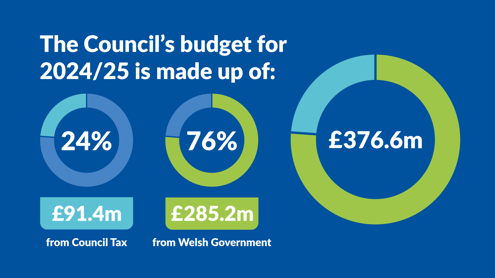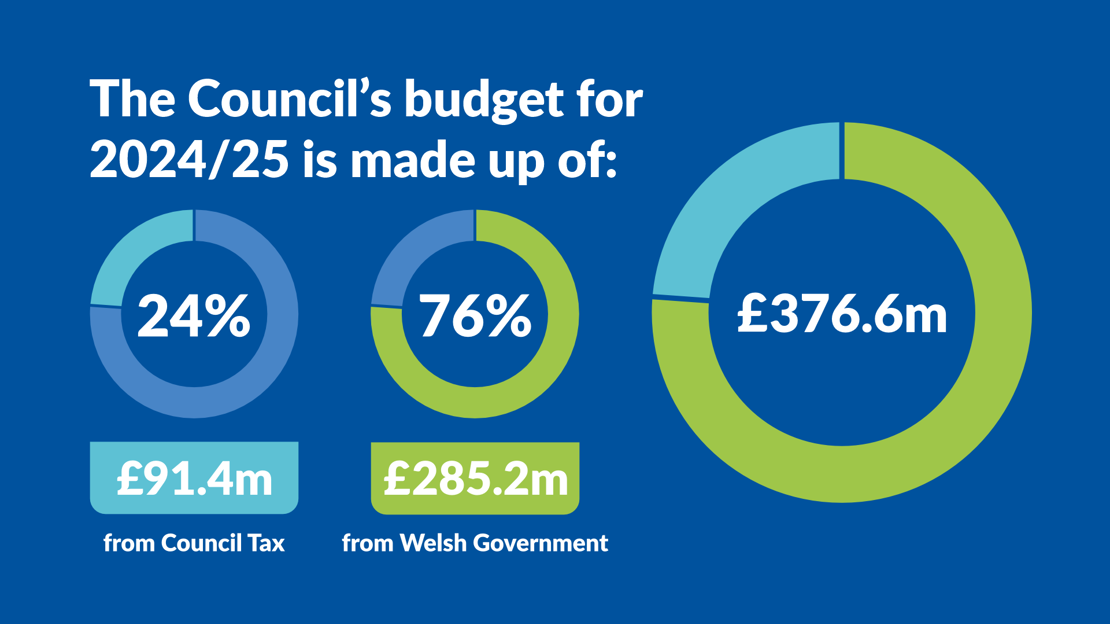The budget gap
The council’s funding comes from two main sources:
- Welsh Government grants
- Council Tax
This is how the 2024/25 budget was made up:


Provisional Local Government Settlement
The Welsh Government’s Provisional Local Government Settlement, published on 11 December 2024, indicated that NPT will receive an increase in funding of 4.4% next year - the tenth highest in Wales. Whilst the increase is welcome, it will be nowhere near enough to cover the cost of services.
NPT is not alone in this. The Welsh Local Government Association estimates that Welsh councils face a collective funding gap of around £560m next year. The total provisional increase in Welsh Government funding is £253m - less than half the amount needed.
Other factors
After over a decade of real term cuts, setting a balanced budget without having to make significant cuts to services or jobs gets more difficult each year.
As well as insufficient funding, several other factors in recent years have contributed to another challenging budget:
- Covid’s legacy has left more people needing help from social and homelessness services, and more children and young people presenting with Additional Learning Needs and/or needing additional help to attend school and participate in their education.
- The Ukraine war caused energy price increases and a steep rise in inflation. Inflation is now below 2%, but goods, services, energy prices and interest rates remain high.
- The cost of living crisis continues and many of our residents and local businesses are experiencing financial hardship.
- The council is engaged in a range of significant economic development opportunities and is a key partner in responding to the changes at Tata Steel UK Ltd, but the cumulative impact of this is very challenging.
Proposals
There are more than 70 proposals with an estimated value of £8.633m to help close the budget gap.
You can see a full list of the proposals in this Cabinet report.
These fall into a number of themes including:
- applying for more grant funding and offsetting certain costs (e.g. staffing) against grants and other funding
- continuing to rationalise council buildings
- full recovery of costs for some services provided to other organisations
- increasing income through fees and charges and take up of some paid for services
- reviewing how some services are provided
- reviewing contracts
A number of proposals have already been consulted on and approved to be implemented in the next financial year.
There are also some proposals, such as those involving service redesign, that would be the subject of their own consultations before any final decisions were made.
Other administrative proposals will have no effect on service delivery in the short term, so are not part of the consultation. These include:
- reducing staff numbers (e.g. not filling some vacant posts, voluntary redundancies etc.)
- making use of grant funding
- a natural reduction in demand for some services etc.
Have your say
We are consulting on these proposals until Friday 31 January 2025 and would value your views.